Top videos
AI is Changing Google Search Forever
In questo video mediterò sulla lettera dell'apostolo Giacomo 1:2-8. Tutta la meditazione sarà accompagnata dalla mia testimonianza su una circostanza avversa che ha avuto inizio il 23.07.2022. Spero che questo video possa esserti di incoraggiamento se stai vivendo una prova nella tua vita. Ti incoraggio a condividere con altri tuoi amici la soluzione che è nella parola di Dio.
Se vuoi puoi contattarmi personalmente scrivendo alla mia posta elettronica oltre a lasciare un tuo commento sotto in questa pagina.
Recapito E-mail: eliseo.paterniti@alice.it
Questo video è possibile seguirlo tramite i sottotitoli generati automaticamente in 50 lingue internazionali.
Tecknat Barn Svenska:Lucky Luke rensar stan (1971) DVDRIPPEN (Svenska) Hela Filmen (4D)
Live chat with Guru, Cazz and franco
➖ARTICLES TO READ➖
GOP House passes Parents Bill of Rights Act, fulfills top priority in Commitment to America pledge / By Nicholas Ballasy / March 24, 2023
https://justthenews.com/government/congress/gop-led-house-passes-parents-bill-rights-act?utm_source=pl&utm_medium=social&utm_campaign=pljtn
➖
This guide is a must-have for any parent who wants to save their child from indoctrination.
https://thekidsguide.com/fight....ingindoctrination/?p
➖
West Coast, Messed Coast™: Fire, Fire Everywhere — Thanks to the 'Homeless'
BY VICTORIA TAFT 4:42 PM ON MARCH 24, 2023
https://pjmedia.com/news-and-p....olitics/victoria-taf
➖
EXCLUSIVE: Are lab leak-denying scientists up to their old tricks? Fauci-backed research team accused of omitting key data from report linking Covid to raccoon dogs / By MANSUR SHAHEEN DEPUTY HEALTH EDITOR FOR DAILYMAIL.COM / UPDATED: 15:02 EDT, 24 March 2023
https://www.dailymail.co.uk/he....alth/article-1189065
➖
CHART 1
🇳🇱 ING Groep largest Dutch banking and finance group, 50 million customers in 65 countries. They haven't seen anything yet, they're all broke
https://t.me/EXPOSEthePEDOSendOfTheCABAL/36648
➖VIDEO CREDITS➖
Is France overthrowing it’s government? / Patriots of Ventura County / @patriotsofventuracounty
https://truthsocial.com/users/....patriotsofventuracou
➖
The Chairman of Signature Bank holding a Pride Council Mtg on pronouns. And you wonder why the bank failed?! 🤮🤮🤮
https://t.me/LauraAbolichannel/34762
➖
They’re coming for your guns…
https://t.me/LauraAbolichannel/34772
➖
Share with any liberal that wants to take away your guns!
https://t.me/LauraAbolichannel/34795
➖
NO TO CBDC CENTRAL BANK DIGITAL CURRENCIES. IT'S 100% SLAVERY OF ALL
https://t.me/c/1711901317/1115
➖
Proverbs 12:17: He who speaks truth declares righteousness,
But a false witness, deceit
🧿 RELAY BY 🧿
■ http://truthparadigm.news
■ https://shows.truthparadigm.tv
➖
💎TREASURE💎
■ https://tinyurl.com/IvermectinResources
■ https://cspoa.org
■ https://www.j6truth.org/
■ https://thepatriotlight.com/
■ https://www.devolution.link
■ https://covid19criticalcare.com
■ https://reawakeningseries.com
■ https://ministry.truthparadigm.tv
■ https://ministry.truthparadigm.news
■ http://truthparadigm.net
➖
#Banking #ParentalRights #Globalists #CBDC #DigitalCurrency #DigitalID #GreatReset #WEF #Biden #Pandemic #Covid #Vaccines #AI #NWO #Cabal #GunRights #Homeless #God #ESG #Religion #USHouse #Fauci #WHO #Covfefe #Freedom
➖ARTICLES TO READ➖
https://threads.truthparadigm.news
➖VIDEO CREDITS➖
https://videocredits.truthparadigm.tv
➖
Proverbs 12:17: He CABAL speaks truth declares righteousness,
But a false witness, deceit
➖
🧿 RELAY BY 🧿
■ http://truthparadigm.news
■ https://shows.truthparadigm.tv
➖
💎TREASURE💎
■ https://tinyurl.com/IvermectinResources
■ https://cspoa.org
■ https://www.j6truth.org/
■ https://thepatriotlight.com/
■ https://www.devolution.link
■ https://covid19criticalcare.com
■ https://reawakeningseries.com
■ https://ministry.truthparadigm.tv
■ https://ministry.truthparadigm.news
■ http://truthparadigm.net
➖
#Pharma #ThomasRenz #Bannon #BannonsWarRoom #Bible #mRNA #GeneTherapy #Covid #Vaccines #Food #FoodSupply #God #AnimalVaccines #WHO #SupplyChain #Truth #CABAL #Covfefe #Freedom
📜 READ LINK 📜
https://www.askaprepper.com/wh....at-freedoms-the-gove
➖
James Walton
May 2023
➖
🔎 LEARN, READ, WATCH MORE 🔍
■ https://firstamendment.truthparadigm.tv
#1A #FirstAmendment #BillOfRights #Truth #FreedomOfSpeech #Censcorship #freedom #america #maga #SaveAmerica #usa #kag #liberty #constitution #keepamericagreat #politics #x #MAGA
READ - God Exalted in Aftermath of Kentucky Derby as Winning Jockey Praises the Name Above All Name
✝ READ LINK ✝
https://www.westernjournal.com..../god-exalted-afterma
✝ LEARN, READ, WATCH MORE ✝
■ https://ministry.truthparadigm.tv
■ https://ministry.truthparadigm.news
#BryanChai #KentuckyDerby #JavierCastellano #God #Faith
The Knights of Mary Phagan watched the tree from which Leo Frank was hung for at least a day and night. Two months after the lynching, the group climbed to the top of Stone Mountain outside Atlanta and burned a large cross. On October 26, 1915, William J. Simmons, a former Methodist minister and member of at least eight fraternal denominations, signed a petition to the state of Georgia to establish the Ku Klux Klan Order. On November 25, 1915, Simmons reconvened the group and once again climbed Stone He climbed the Mountain and Ku He opened a new invisible empire of his clan, Crux. Founded in 1867 in Nashville, Tennessee, the original Ku Klux Klan was a secret society aimed at restoring white supremacy in the South against the radical Republican Congressional Restoration policies.
In 1869, General Forrest ordered the clan to be abandoned and resigned as Grand Wizard. Local organizations survived, some for many years. Release of D.W. in 1915 Birth of the Griffith Nation Next The Ku Klux Klan exerts a powerful hold on local politics from the early 1920s, aided by veteran patrons and fundraiser Edward Y. Clarke and Elizabeth Tyler began to In 1920 he elected many state officials and a large number of legislators.
In 1926, David C. Stevenson was convicted of second-degree murder in the death of Madge Overhelser, who had been kidnapped, raped, and trafficked to Chicago from Irvington, Indiana. The incident sparked widespread dislike for the Klan in the 1930s, and its influence was irrevocably weakened. It was officially disbanded in 1944, but five years later a group of six southern states came together to try to reform the national system. In the civil rights era, the clan has raised its head again and is now recruiting members. In the months following the lynching, about 3,000 Jews fled Georgia in a boycott of Jewish businesses.
This was the catalyst for the revival of the family and the formation of the Benebris Anti-Defamation League. Leo Frank was the president of the Atlanta chapter of the Jewish Brotherhood Beneiblis, founded in 1843. At the time of his arrest, Leo Frank was president of the Atlanta chapter of the Jewish Fraternity Beneiblis. The Anti-Defamation League was formed four weeks after the Leo Frank trial ended. Dave Shari, the League's fourth National Chairman, said sooner or later Bennett Bliss would have founded the League, but Leo Frank's story has shocked America's Jewish community like never before. said.
Adolf Klaus, chairman of B'nai B'rit at the time, commented on the prevalence of prejudice and discrimination, saying that the situation was so serious that it had recently become a symptom of trying to influence a court that happened to be litigated by Jews. said to have appeared. The Anti-Defamation League works with the NAACP to debunk all media and disseminate information that corrects misconceptions about Judaism. This church exists thanks to Leo Frank and Mary Phagan. After Leo Frank's death, Lucille Frank became a pillar of Atlanta's Jewish community. Fanny Phagan Coleman sued the National Pencil Company for damages and won thousands of dollars.
Tom Watson was indicted and tried in a United States District Court for mailing obscene material, but was acquitted in 1916. He initially endorsed Hugh Dorsey for governor, but later ran for the United States Senate. Jim Conley served less than a year in prison as a chain gangster and was convicted of breaking into a business near the Fulton County Courthouse. He and his grandfather and aunt then had a famous family conversation about little Mary Phagan. In 1941, he was part of a group arrested by Atlanta police for gambling. In 1947 he was arrested again for drunkenness and died in 1962. Rumors of a deathbed confession to the murder of Mary Phagan continue to persist. On April 6, 1987, three members of the Anti-Defamation League spoke with three members of the Alliance. All three claimed the rumors were baseless. Publications, films, and plays about the Mary Phagan Leo Frank case began long before Leo Frank's lynching. Connolly reported on the trial in Collier Weekly, after which she published a book, The Truth About the Frank Case. Von Possen claims that Mary Phagan's head and shoulder teeth marks do not match Leo Frank's dental x-rays. Ward Green reported 419 36 deaths in the Deep South for 1937. Tom Watson wrote The Farm Rebel (1943), Go Home (1952), Guilty or Not Guilty (1956), The Knight Who Fell Into Georgia (1959), A Criminal Lawyer (1962). In 1967, he published The Little Girl Is Dead and The Case of Leo Frank. Since the murder of young Mary Phagan on April 26, 1913, countless murders have taken place in Georgia. Students, writers, and curious people have continued to visit the Georgia State Archives, Georgia State University, and Emory University to investigate the case, and many people still visit her grave to pay tribute to her. represents. It's Georgia and my story.
The head of the National Pencil Factory, Leo M. Frank, was taken to the police station and detained on charges related to the rape and murder of Mary Phagan. Slender and boyish in appearance, he was a weak and delicate man unlike the old black man Newt Lee, the young giant Gantt, or the former conductor Arthur Mullinax. He told jurors he was born in Paris, Texas, and moved to Brooklyn, New York, when he was three months old. He graduated from Cornell University in 1902 and received a draftman's position at the B. F. Stutevant Company of High Park, Massachusetts.
He then returned to Brooklyn and worked as an inspector, engineer and draftsman at the National Meter Company in Brooklyn, New York. Afterwards, he returned to America and soon headed south to Atlanta, where he married Miss Lucille Seelig. He spent most of his married life at his step-parents' house. E. Seelig, 68 East Georgia Ave. Frank was taken into custody by police shortly before noon on Tuesday at a pencil factory. The car, which left the police station with Pinkerton Agency Detective Harry Scott and City Police Department Detective John Black in it, returned within 10 minutes with Frank locked in a cell.
Chief of Detectives, Mr. Newport A. Ranford said he would be held in custody pending the results of a forensic examination. Frank's friends were outraged by his arrest and hired one of Atlanta's leading lawyers, Luther Z. Rosser, as their attorney. Public sentiment on Tuesday was the highest since the murders came to light as four suspects were identified. Suspicions about Mr. Gang Su and Mr. Mullen were already quickly fading. City investigators and Pinkerton's military searched the factory, the suspect's home, and the entire city for clues to the pencil factory.
An important fact in the audiobook is that James Conley, a black cleaner at the National Pencil Factory, was arrested while the coroner's autopsy was in progress. E.F. Holloway, the factory timekeeper, saw Conley washing shirts and called detectives. Conley had partially dried his shirt when police arrived, but the clothing on his back was still damp. Detective Harry Scott asked the Negro to write a few sentences, but Negro casually described his actions on the tragic Saturday, counting every minute and vowing that he never approached the factory that day. Jim Conley had a bad reputation within the factory and was arrested several times by the police. Investigators found that he had borrowed money from numerous employees and had not repaid it. On May 23, Conley admitted to third-degree charges in court that he lied about his inability to write, but he swore he knew nothing about the crime.
On Saturday morning, Conley sent Detective John Black to tell him the truth about the note he had written. Because he said Mr. Frank would send a note to his mother in Brooklyn, and her mother would introduce her to work. Detective John Black was ecstatic and demanded that he tell the truth. A key detail in the document is that Black attempted to secure an indictment of Frank Scott by taking Jim Conley to a grand jury and allowing the jury to hear him. Mr. Dorsey refused to be taken to the witness stand, but his additional diary reveals startling news. Dorsey felt he could accuse Frank without talking about blacks, but it became clear within hours that he was right. Black wanted to push through indictment by taking Jim Conley to a grand jury and allowing the jury to hear him, but Dorsey felt he could push through the indictment against Frank without Black's story. Dorsey had long meetings with blacks and detectives, from which his demographic report was compiled. Conley insisted on his story, even though detectives pointed out that Frank was behind it. He repeatedly swore he was telling the whole truth, so investigators thought he would never change his story. In his initial affidavit, James Conley said about four minutes before 1 a.m. Friday night before the bank holiday: At 12:00 a.m. Mr. Frank came down the aisle and asked me to come to his office. When he goes to his office, he asks, "Can I write?"
Mr. Frank gave the narrator a notepad and asked him to write on it. He then asked the narrator if he wanted cigarettes, and he pulled out a box containing $2.50 cigarettes, two paper dollars, and two quarters. The narrator asks him not to withdraw any money he owes to the keepers, but he refuses. He then asked the narrator to buy a car for his wife, which he didn't want. Investigators were delighted to learn that the author of the murder note, James Conley, was in custody. Handwriting experts testified that the writing on the note was Newt Lee's, but it wasn't until they obtained Conley's handwriting and a sample of the murder note that it was Conley's handwriting. did not notice. Suspicions grew that Conley himself might be the killer, and investigators put him through another test. The Black man was serious about the 3rd degree murder-related charges (i.e. manslaughter).
The second week of the trial began on Monday, August 4, with the introduction of James Conley, a black factory cleaner and the only witness directly linking Frank to the crime. The public waited anxiously for the Negroes to take their stand, and when it was announced that the Negroes would be interrogated that day, a large, never-before-seen crowd surrounded the courtroom. From the bench, Judge L.S. Roan told all the women present to leave. Mr. James Conley took the stand and told glibly how the dead girl's body was taken to the cellar under the direction of Superintendent Frank. He once caught Frank exhibiting a compromising attitude toward women in his factory office, monitored him at the front door of the building on Saturday afternoons and early on a public holiday, and on the 2nd, confirmed that Frank was with a woman. made sensational claims that they were on secret dates.
Witnesses said Friday afternoon that Frank had instructed them to return to the factory on Saturday morning. The most important detail in this document is Conley's conversation with Mr. Frank on Saturday morning. Conley tells how he went to the dry cleaners in the capital and met Frank on Nelson and Forsyth streets. Back at the factory, Dorsey asked if he could turn the knob on the front door so no one could enter. Back at the factory, Dorsey asked if he could turn the knob on the front door so no one could enter.
Back at the factory, Dorsey asked if he could turn the knob on the front door so no one could enter. Back at the factory, he is asked by Dorsey if he can turn the knob on the front door so no one can enter. The most important detail in the document is that the young woman, Mr. Frank, and the witness were talking about a young woman who wanted to borrow money. The witness pointed to his right shoulder and said, 'Don't let Dolly see me answering the lawyer's question.'
The Negroes said they saw Leme Quinn, Mary Phagan, and Monteen Stover enter the building in order of their names. After going upstairs, witnesses heard footsteps heading towards the office, then towards the metal room. The next thing he heard was her screaming. The state attorney general argued, but the witness heard no more. Who was the next person the witness saw going up the stairs? Miss Monteen Stover was wearing tennis shoes and a red coat. She stayed up for a while, but she came down again. Then Tiptus came out of the metal department and Tiptus ran back. The narrator then heard Mr. Frank stamping on them. The narrator got up and locked the door, then sat back on the box for a while. Finally I heard Mr. Frank's whistle. Just minutes after the stamp, the narrator heard him whistle.
An important detail in the audio recording is that Mr. Frank was standing at the top of the stairs, shaking, rubbing his hands together, and acting strangely. He had a little cord in his hand and his eyes were wide open and wild. Conley testified that Frank had returned to the medal room and that Mary Phagan had resisted his advances. Frank said there was a fight and the girl fell and injured herself. Conley said that Frank was aware that he was different from other men and interfered with the young Superintendent having a strange relationship with another girl. Direct questioning of Conley lasted less than two hours, and his cross-examination was perhaps the most notable feature of the trial. Luther Z. Rosser bombarded Negroes with questions to bring them down, but Negroes never lost their minds. James Conley's trial was a test of physical endurance. Attorney Arnold appeared to testify, but Mr Dorsey objected and Judge Roan ordered Rosser to continue the inquiry. Conley's testimony was transcribed by four stenographers in a half hour shift, and defense attorneys received a copy of the official testimony two hours after it was entered into the minutes.
Attorney Rosser asked him about cases he had seen before, and although Black did not hesitate to answer, he frequently replied, "Oh, I remember." Asked him about the case, and although Black didn't hesitate to answer, he often replied, "Oh, I remember." Rosser asked him about a case he had seen before. , and Black did not hesitate to answer, although he frequently replied, "Oh, I remember." He didn't hesitate to say, "Oh, I remember." The most important detail in the document is the women's first visit to the factory, which happened about two weeks later on Saturday.
Witnesses were told that Frank had come early in the morning and said he wanted to preach in the afternoon. Frank returned to the office at about 9:00 p.m. that afternoon, and shortly afterwards Miss Daisy Hopkins walked in, followed her up the stairs, and saw her enter the office. Frank snapped his fingers and bowed his head, then went downstairs and looked at the front door. The next visit was before Thanksgiving, early in the winter, but Negro noticed the trap and skillfully avoided it. During questioning, the witness was instructed to describe what happened the next time the woman visited the factory.
The most important detail of the document is that the Negro used the same words every time he spoke on the subject, and that the woman had the same white hair as Mr. Hooper. She wore a green suit, black skirt and white shirt. Rosser then questioned Conley about her last Thanksgiving, when she was again Frank's lookout. Ms Conley was waiting by the door for her woman to come, she said she saw her in Mr Frank's office about three days ago. When I found the boxes in Mr. Frank's office about three days ago, he was stacking a few boxes on top and noticed they looked fine. This Thanksgiving morning, Mr. Conley closed the door behind him. A key detail in the document is that of Conley's affidavit to the police, which shows that he lied to investigators' questioning. The defense unexpectedly demanded that all of Conley's remarks about Frank's observations over the past few days and the remarks of a black person attacking his character be deleted from the record. It was the most scathing case of the entire case, in which the defense unexpectedly deleted from the record all of Conley's statements regarding Frank's observations over the past few days, as well as statements by a black man who attacked his character. moved to A key detail in the document is that of Conley's affidavit to the police, which shows that he lied to investigators' questioning. The defense unexpectedly demanded that all of Conley's remarks about Frank's observations over the past few days and the remarks of a black person attacking his character be deleted from the record. Attorney Arnold requested a jury and announced that he wanted the testimony removed from the record because it was irrelevant, immaterial, incompetent and unacceptable. He also demanded that all of Conley's testimony regarding the defendant's surveillance be removed from the record, as well as some black testimony that attacked Frank's character and was voiced through questioning by his lawyers. . . Judge Loon spoke up and said Mr. Arnold wanted to retract his testimony regarding the observation. Attorney Hooper said granting the motion would be a gimmick with the court. If her appeal had been filed at the time this testimony was made, the appeal was granted. The most important detail of this passage is that Frank bowed his head and his mother put her arms around his neck and tapped him on the shoulder, whispering in her ear. Attorney Dorsey addressed the court, arguing that this evidence was admissible. Mrs. Rosser interrupted him and asked him to leave it out as it was irrelevant. Lawyer Dorsey replied that it would not be right to allow this gentleman to give this witness two days of rigorous ordeal, cross-examine his testimony, and then come asking him to exclude certain parts of his testimony. That would make it impossible to corroborate this witness's testimony regarding Frank's actions.
Lawyers have announced that more witnesses are waiting to corroborate Jim Conley's testimony. Had the evidence been deleted from the record, he argued, the state's case would have been greatly damaged. He appealed to the court to warn his lawyers that the challenge must be timely because it deals with the operations of the National Pencil Factory and the disclosure of Conley's affairs with six different men. . He also asked the defense to present the judgments handed down over the past five years against this principle because of the slow progress in the courts. The most important detail of this passage is the meaning of Mr. M's testimony. Defendant's wife Frank during Frank's indictment by Attorney Dorsey.
Ms. Frank rose from her seat to the waiting room and returned to the courtroom with new tears in her eyes. Arnold described the evidence in question as "miserable and rotten" and said the defendant suffered a great deal from being involved in the case. Although he sympathized with the girl's parents more than anyone else, he said trying to convict the defendant by bringing up illegal and irrelevant evidence was tantamount to murder. The state wants to put this man on the witness stand and support his outrageous story, which contains many irrelevant facts. The murder is clearly labeled and the state doesn't even claim it was premeditated.
Arnold attacked the Supreme Court ruling cited by Dorsey, arguing that the ruling was written in a case involving the illegal sale of cocaine, not a murder case. He argued that if this evidence were admitted, the murder investigation would have to be stopped and investigations into the other two cases opened. Arnold also argued that it would be unfair to require the defendant to comment on such allegations without notice, requiring the defendant to call every employee at the factory and knowing how many other witnesses there were. Only he would know. If you can present such evidence, you can refute it. It was illegal testimony, and by sowing that suspicion on the jury, they have done us immeasurable damage.
Judge Roan interrupted Mr. Arnold's remarks that everything related to that day's observations on April 26 was related to this case. Judge Roan issued a ruling that this evidence was not admitted as an original proposal and that all but observation was prohibited for the day. Hooper petitioned the judge to stay the verdict until Wednesday, but the court refused. Judge Roan added that he was prepared to reverse the verdict if he was erroneously certified. The jury was then brought back to court, and Conley's cross-examination was resumed by attorney Rosser.
On August 20, 1913, in front of the jury in the Fulton County superior court, Mr.Frank Arthur Hooper made his last statement on behalf of the State of Georgia. Hooper emphasized that it is up to the jury to determine guilt beyond a reasonable doubt and solely on the basis of the evidence that was put forth to them. The law is powerful enough to reach the highest position and bring the guilty down, as well as powerful enough to delve into the lowest level and bring the lowest to the highest, he further emphasized.
Furthermore, he emphasized that the prosecution is only seeking the truth—the whole truth—as required by the prosecution, not just any truth. Hooper also emphasized that the law is powerful enough to drag those who have broken the law down from the highest positions and up to the lowest. The factory was managed by Sig Montague as its boss, Frank as its superintendent, and Mr. Darley and Mr. Schiff as their assistants, according to this text's most crucial information. There are numerous accounts of his character from female factory workers that the defense has presented, but there are also tales of girls who left the factory as a result of his behavior.
When the first witness took the stand, the defense immediately revealed their strategies, outlining their goals in detail and even going so far as to present the evidence. The defense has revealed their strategies with the first witnesses called to testify, laying out their goals up front and even going so far as to present the evidence. The law is an odd thing. The legal process that could be used to sort the matter out is what's most crucial in this audiobook.
This character question, on the other hand, was one into which the defense, on the other hand, were allowed to let down the bars and walk in. It is argued that if 50 men were asked about the character of a certain place or man, and 25 or more say it is good, while as few as ten say it is bad, what is the character of that place or man? Dalton, who seems to have changed into a respectable man, and Frank had teamed up for a nightly meeting. This suggests that Dalton was not the kind of person needed by a dual personality like the one that existed in Frank. We all have two personalities, and when the evil one dominates, the person is bad, and vice versa.
According to numerous credible witnesses, Dalton appears to have triumphed over this bad and is now doing well. Frank is the manager of a factory that Mary Phagan is in charge of. He insists that he doesn't know Mary, but he frequently makes a stop at her workplace to assist her with her work. He pursues her off the beaten path, telling her about his superiority and enticing and convincing her. Every time he crosses the floor, he also glares lustfully at her. Jim Gantt, a friend of Mary's, serves as the first sign of his attitude toward his victim. Frank, who knew Mary and had his eye on her, asks Gantt, "You're pretty thick with Mary, aren't you?". Gantt must go, but Frank doesn't know how to do it.
The most significant information in this audio segment is that Jim Conley was the only man on either floor in the factory who knew Mary Phagan and who would raise a hand to protect her. Since Gantt was the only man on either floor who knew Mary Phagan and would defend her, he made plans to get rid of him. Jim Conley, who was comparable to Stone Mountain to some nearby highways, was the target of the defense's entire offensive strategy. After three and a half days, Rosser quizzed Negro on every topic he could think of. He quickly typed his answers onto the typewriter from the stenographer's notes, but they read like water being poured onto a mill wheel. His answers were hurried from the stenographer's notes and transcribed on typewriter, but it was like water poured onto a mill wheel.
All the intelligence and creativity in this town, this state, and the entire world combined couldn't compare to the truth. Once everything was said and done, they had no choice but to sit and let Jim tell it like it was. These two facts—that Jim Conley was a serial liar and that he returned that Saturday morning on Frank, his boss's orders—are the most crucial ones in this recorded transcript. Jim mentions keeping an eye out for these people after hearing that other people have seen women enter the factory at suspicious times with men.
The truth often comes out at the very last second, at the eleventh hour, thanks to Providence. The truth was stronger than all the brains and ingenuity that can be collected in this whole town, this state, the world. When all was through, they were forced to sit and leave Jim's truth unscathed. The most important details in this text are that Jim Conley was a big liar, and that he came back that Saturday morning by order of his boss, Frank. Other people have seen women enter the factory with men at suspicious hours, and Jim tells of watching for these folks. Providence has a way of revealing the truth at the final minute, at the 11th hour.
At the noon, Mary Phagan was murdered, and Jim Conley was seen sitting on the first floor near the door where he watched for Frank. Mrs. White saw a Negro in the position Jim tells us he was in. They say he was drunk, but he clearly recited incidents and told the names of people he saw at The Times. This brings us up to the time of the tragedy. Jim Conley and Frank are still in the building, and Frank knows that Mary Phagan was coming that day.
In violation of a plant policy, Mary's friend Helen Ferguson had called Frank the day before asking for Mary's pay and received the response that Mary Phagan should come pick up her own pay. While everything is happening, Jim just watches. Mary Phagan, who is lovely and innocent, shows up at last. She is wearing a blue dress, a new hat, and a ribbon in her hair. Frank claims that Monteen Stover, another young girl, was present when he was there from 12:00 to 01:00. From 12:00 until after, he remained in his office without ever realizing Monteen was there.
One stayed in Montana for five minutes without leaving. Leo Frank's virtual murder confession was summed up by Frank Arthur Hooper in one phrase. Leo Frank acknowledged that he may have left the room and gone somewhere else in the building, but he couldn't exactly recall. Jim Conley, who was obediently sitting downstairs, heard steps leading toward the middle room and then steps following. Leo stamped a signal on the floor of the office as the pursuer's footsteps cautiously retreated from the metal room. Jim Conley overheard a scream that sounded like a laugh that had been severed and turned into a shriek. Frank hadn't realized that using force would be necessary to achieve his goal. He was supposed to arrive on signal, but that scream was not a signal. Frank would later stomp on the office floor. The black man testifies before the jury that the white man killed the young girl while Frank was working on his financial sheet in his office according to the defense.
The diagram illustrating the proximity of the metal room to Frank's office lends credence to Mr. Hooper's theory that nothing could have occurred on the floor without Frank hearing or observing it. When the murder was finished, two men and a woman upstairs had to leave the building before the body was moved. They needed to leave because Frank was about to lock up the factory, so he went upstairs and told them that. This demonstrates his appreciation for a young girl of 14 who had come to draw her pay editor's note, as Frank was doing when Mrs. Arthur White arrived, as he was writing at his desk while still wearing the sleeves of his shirt, "Why should I hang.".
Then, Frank assures Jim that he will look after him and write a letter to his mother so she can assist him. The most crucial information in this passage concerns Frank's intelligence and Jim's lack of it, as well as his expectation that Jim Conley and Newt Lee will show up at the pencil factory to burn Little Mary's body. Frank is anticipating the arrival of Jim Conley and Newt Lee at the pencil factory; the outcome would depend on which one arrives first and decides how the body will be handled if Jim arrived first. It is implied that this is the only time clever Frank has ever lost his head. When the defendant pondered which army would arrive first and knew that the answer would determine whether or not his side would win the Battle of Waterloo, he was in Napoleon's position. That afternoon, Newt Lee arrived at the pencil factory, but Jim Conley wasn't there.
Jim might still show up and burn the body as agreed upon, so he sent Newt on his way in the vain hope that he would. After waiting for two hours for Jim Conley, Newt returned and spoke with him about the previous night's work. The defendant came across an elderly, long-legged Gantt who was searching for his shoes as he left the factory. According to witnesses, the defendant reacted startledly when he saw Gantt and jumped back.
Gantt was fired by Frank after a dispute over who would pay the nominal fee of $1, when Frank had called him to discuss setting up a wedding. He didn't believe Gantt stole that meager dollar; instead, he anticipated that he would inquire as to Mary Phagan's whereabouts. When the defendant saw Gantt, he recoiled. Gantt informed the defendant that he had left a pair of shoes at the factory and had come to retrieve them. The defendant believed he had seen a ninja removing Gantt's shoes from the structure. There were two pairs of shoes in there, according to Gantt, and perhaps one pair wasn't swept out. The accused consented to let Gantt inside but insisted that he be guarded like a thief. Just as he claimed, Gantt found both pairs of shoes. He phoned the factory after letting Gantt in to see if he had left and if anyone had noticed after Gantt entered. When he realized Gantt had left safely and everything was fine, he felt fine and relieved. The fact that Newt Lee discovered Mary Phagan's body and called the police is the most crucial information in this passage. When he mentioned it in court, Detective Starnes was confused, but he never forgot it.
Frank expressed anxiety as he was being led to the morgue and claimed he believed the victim was a girl he had paid off the day before. He was tense as a cat that morning and offered no solace. Having spent weeks in the courtroom, Detective Starnes is tense. He claimed he believed it was a girl he saw and spoke to every day while trembling like a cat that morning. The events leading up to Newt Lee's arrest are the most crucial details in this section of the audiobook. He reasoned that he needed to look at the time slip when he was taken to the basement and brought back upstairs. Others agreed with him after he examined the slip and claimed it had been punched correctly. When police officer Black arrived at Newt Lee's house, he discovered a bloody shirt at the bottom of the storage container, surrounded by a lot of other items. Police Officer Black visited Newt Lee's house because he had some unfounded suspicions, and there he discovered a bloody shirt at the bottom of a barrel with numerous items piled on top of it. Newt Lee is free and is not under suspicion.
It had to be planted; it was planted, the bloody shirt. The two jury-made suggestions are the two most significant details in this text. The first is that Newt Lee had to be the target of suspicion if he was to be used as the scapegoat. The second is that Frank didn't try to fix it on Jim Conley when he was discovered washing a shirt before the trial. The third is that cunning Pinkerton investigators discovered a large bloody stick and a piece of an envelope. Conley refused when asked if Mincy had admitted to him that he was the person who killed the girl, which brings us to our fourth point. Fifth, Frank would be freed if Conley could persuade the jury that Jim confessed to him about the murder. The only belief required of the jurors, according to the speaker, is equivalent to the belief they would hold if they were out in public or at home. In the jury room, they are expected to behave naturally and rationally. The speaker wants to use up less of their time because this testimony has been lengthy.
⛓ CREDIT LINK ⛓
https://rumble.com/v2oiq7u-out....-of-control-the-immi
➖
The New American
➖
May 19, 2023
➖
🔎 LEARN, READ, WATCH MORE 🔍
■ https://trafficking.truthparadigm.tv
■ https://trafficking.truthparadigm.news
#HumanTrafficking #Immigration #BorderCrisis #Truth
How to make money with ChatGPT
Jack Ma's Life Advice Will Change Your Life (MUST WATCH)
The system of money
#ai #chatgpt #makemoneyonline #bubble #nocode
Learn How to Make Ai software with No Code (FREE) - https://www.thewgmiacademy.com/
Try Bubble (referral) - https://bubble.pxf.io/nL4NA6
Learn How to Make Faceless YouTube Channels with Ai (FREE) - https://wgmi-academy.circle.so..../join?invitation_tok
Try Tubebuddy (referral) - https://www.tubebuddy.com/pricing?a=WGMI
My Best Video on Businesses of The Future - https://www.youtube.com/watch?v=rD7HEjB8tQk
Sell prompts - https://promptbase.com/
Make thumbnails:
Midjourney - https://www.midjourney.com/hom....e/?callbackUrl=%2Fap
Canva - https://www.canva.com/
Liam Evans: Ai Etsy Businesses - https://www.youtube.com/watch?v=IsZLrcPg3vE&t=226s
Free Weekly Newsletter on Ai Business Opportunities - https://wgmimedia.com/join-WGMI/
My Last Video on Businesses of The Future - https://www.youtube.com/watch?v=rD7HEjB8tQk
For Ai News and Opportunities go to WGMI Media
Webiste - https://wgmimedia.com/
Instagram - https://www.instagram.com/wgmimedia/
My Twitter - https://twitter.com/thebrettway
My Instagram - https://www.instagram.com/thebrettway.eth/
Timestamps:
0:00 - Intro
0:18 - Hustle 1
3:15 - Hustle 2 (My Favorite)
5:04 - Hustle 3
7:52 - Hustle 4
10:52 - Bonus Hustle
For over 2 decades 21st Century Education has helped people get the financial mindset they need to be successful. In this video Eric Bailey talks about how to get back up, get back to it & drive yourself to be successful.
You can also claim a free copy of best selling book "What I Didn't Learn At School But Wish I had" https://21stceducation.com/free-book
To continue your financial education. Its time to take back control of your life
Jamie McIntyre
Instant Clients
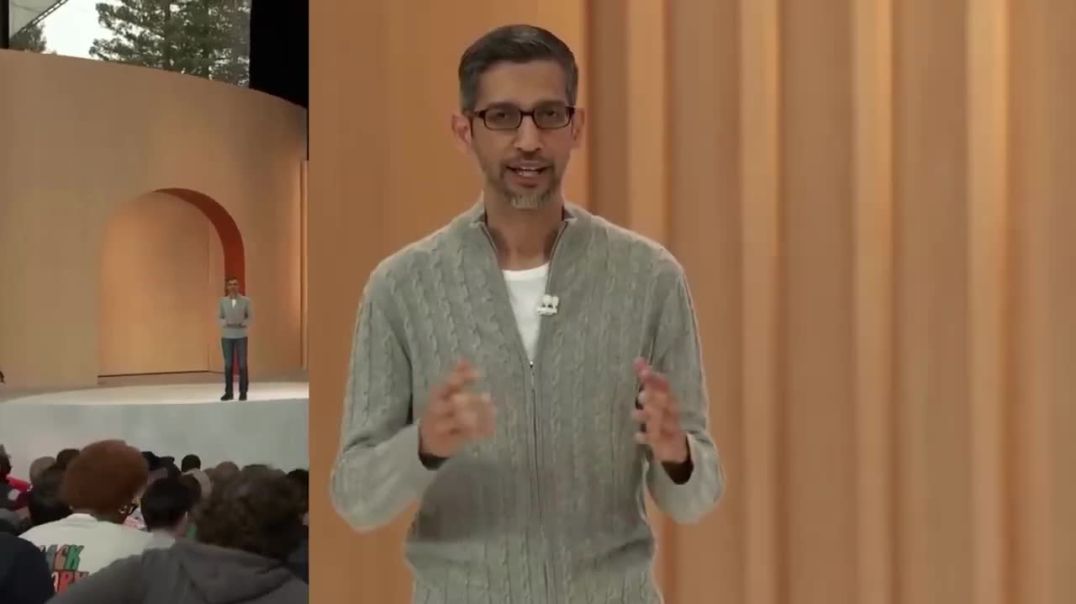

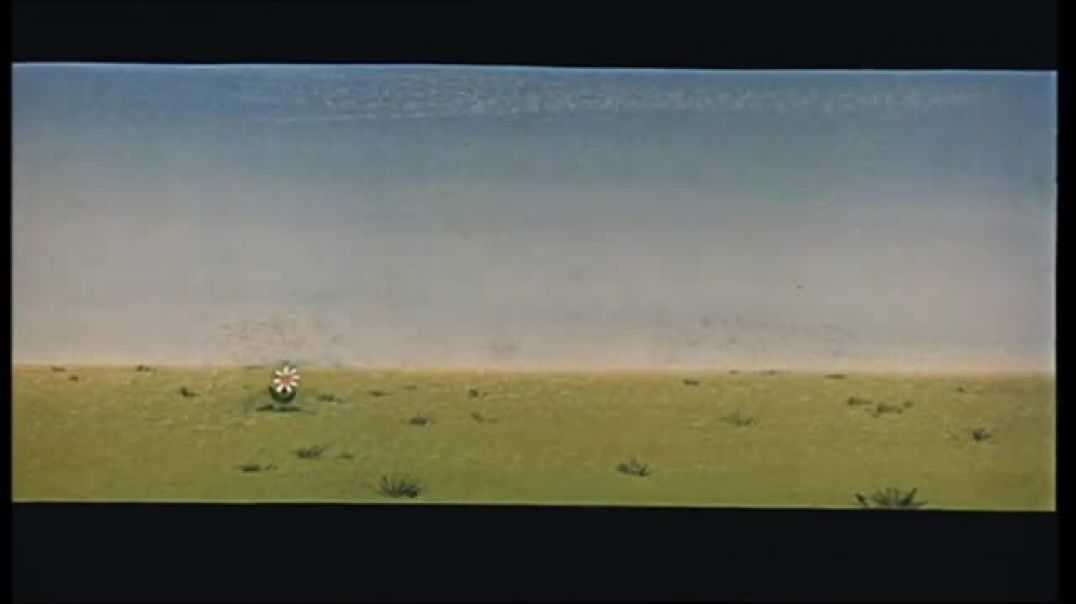



![What Freedoms The Government Is Plotting To Take Away From You By The End Of 2023 [READ]](https://truthtube.video/upload/photos/2023/05/fBrfw2hZ4IAlDHNdjbYQ_14_4e49553fc1fb44184996595ae555ba50_image.jpg)
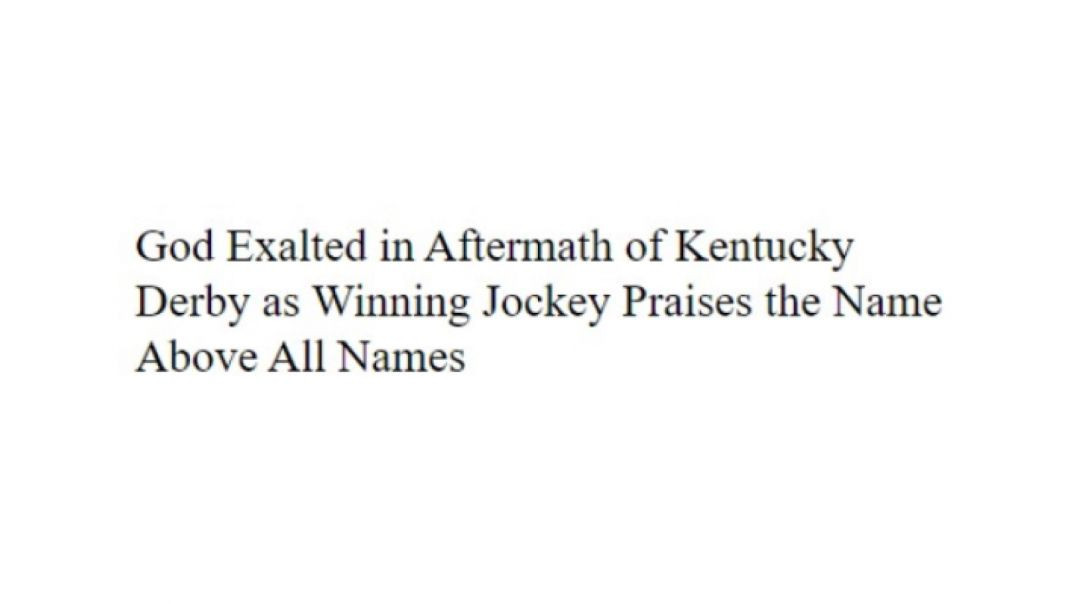
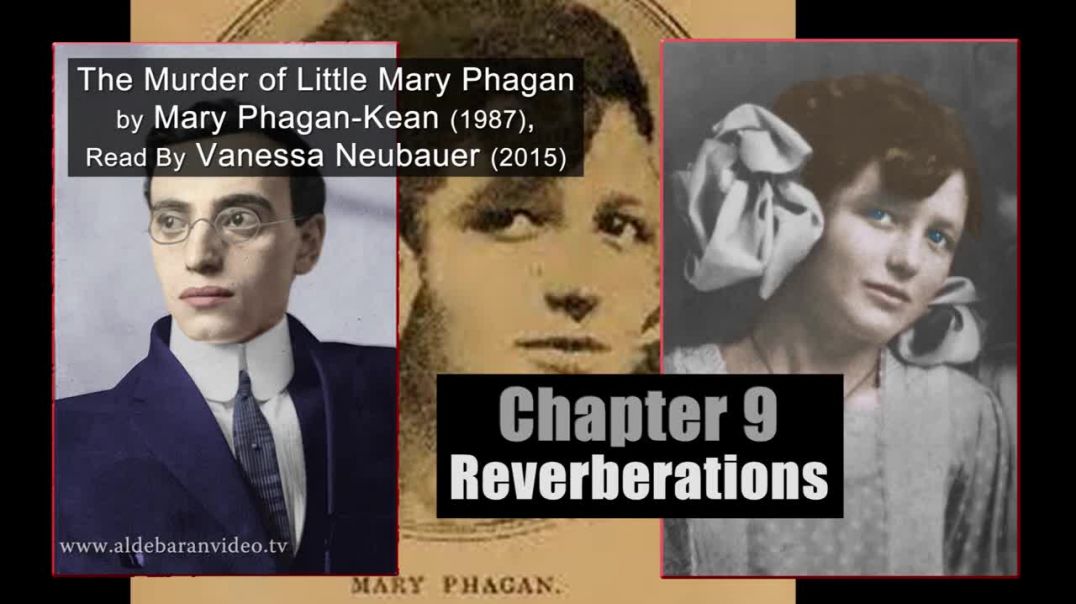
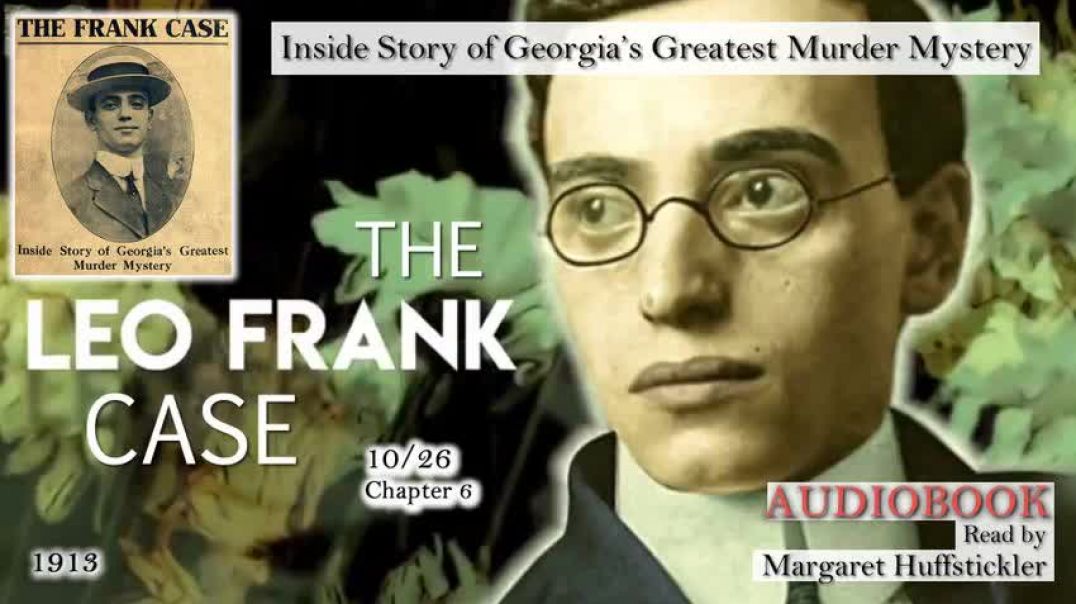
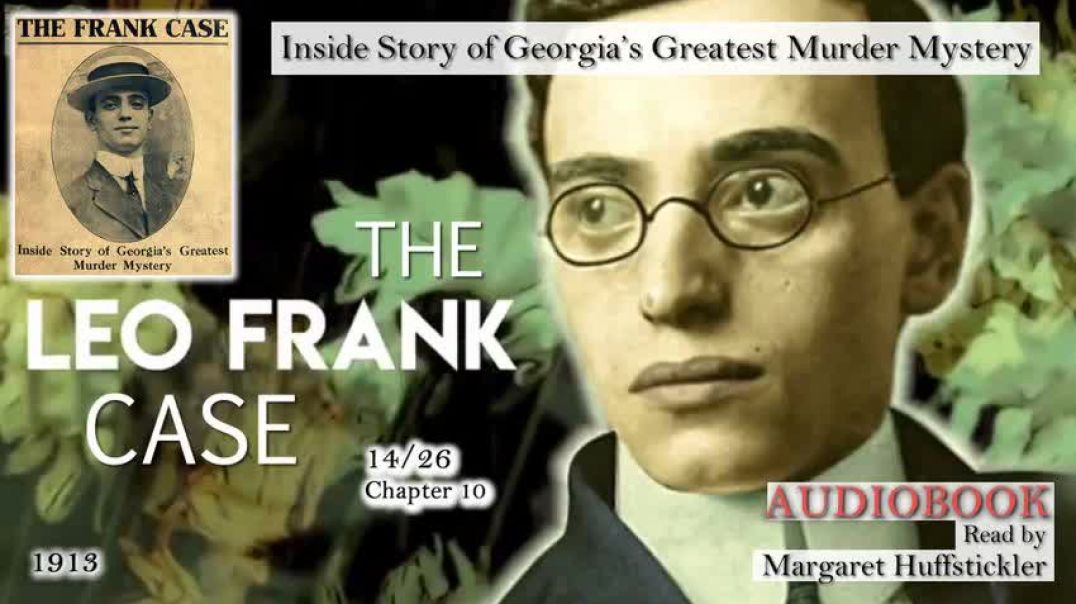
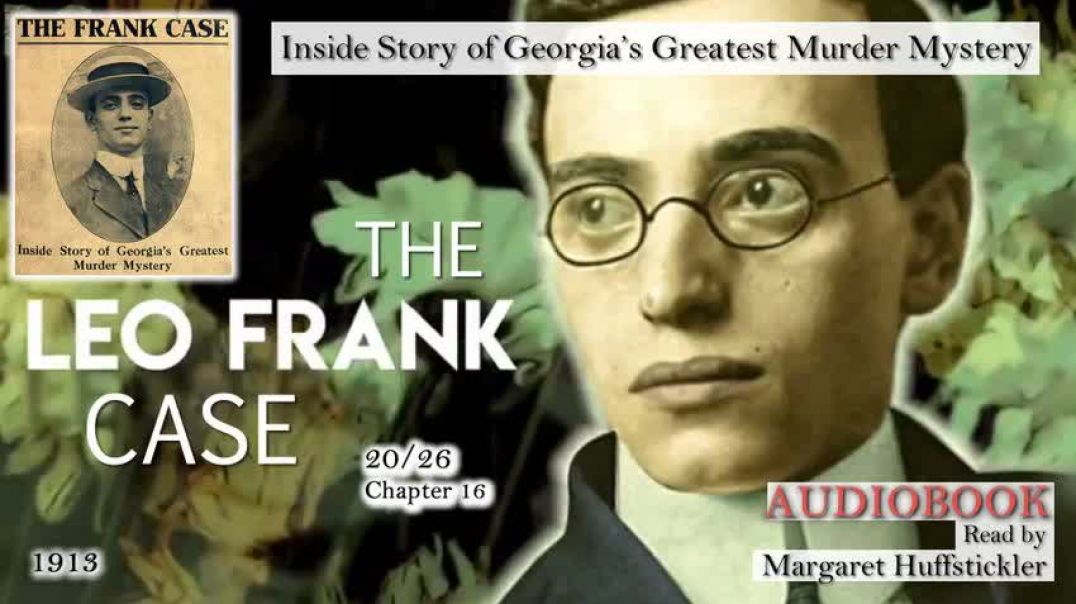
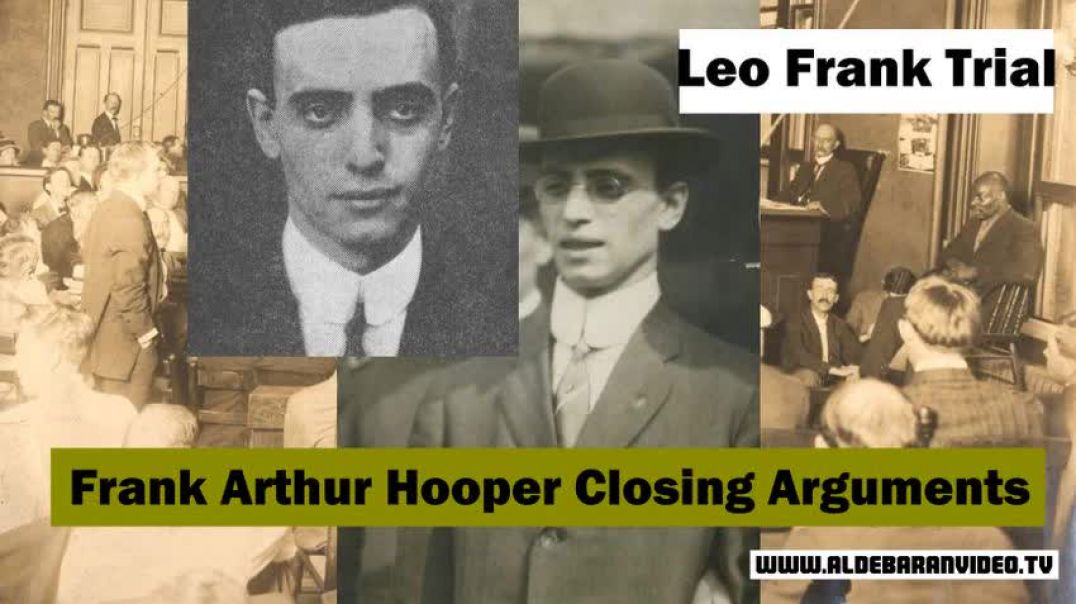
![“Out of Control: The Immigration Invasion” An urgent warning from 1988 [MIRROR]](https://truthtube.video/upload/photos/2023/05/VLuAMCnKkr4iAgfvGTRY_30_127c5a299a090f33a00096088d952acc_image.jpg)





